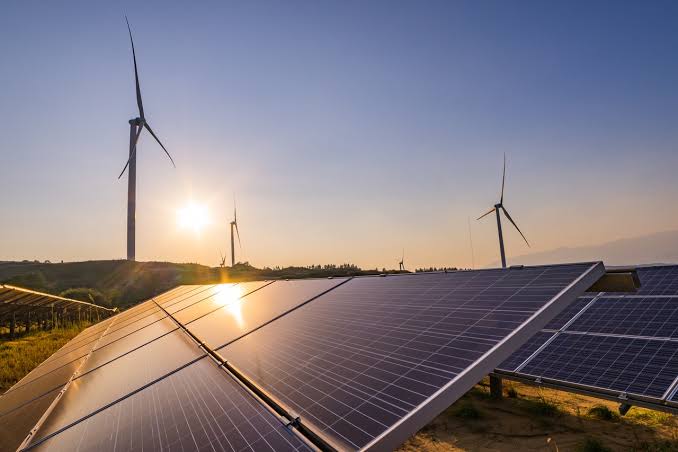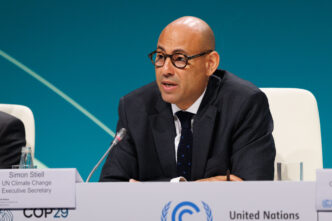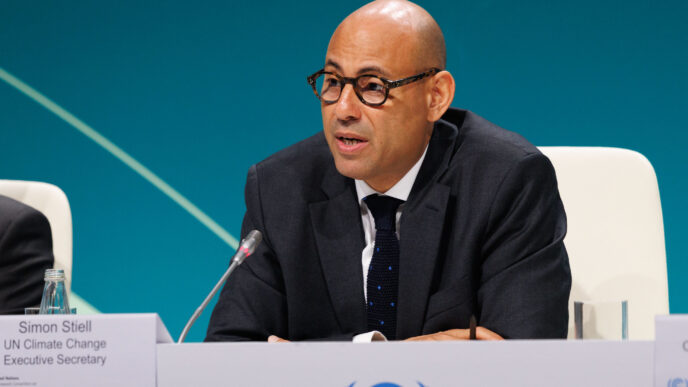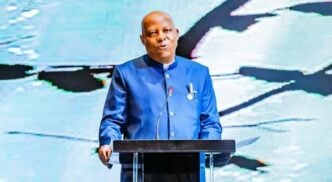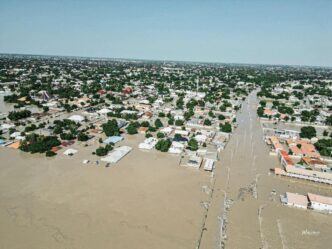A new report by Power Shift Africa (PSA) says Africa could save up to $5 trillion by transitioning to fully renewable energy sources by 2050.
The report, titled ‘African Energy Leadership: The Case for 100% Renewable Energy’, was released on Thursday in collaboration with the Institute for Sustainable Futures, University of Technology Sydney (UTS-ISF), at the ongoing June climate meeting (SB62) in Bonn, Germany.
The report argues that a 100 percent renewable energy future for Africa is not only achievable but also the cheapest, healthiest, and most equitable path for the continent’s development.
The study, which models a continent-wide shift to renewables, finds that towing pathway could generate fuel cost savings of over $8 trillion — more than double the additional investment needed to achieve full transition.
Advertisement
According to the report, achieving a 100 percent clean energy system by 2050 would require about 3,500 gigawatts of installed capacity, primarily from solar photovoltaics, wind, energy storage, and modernised power grids.
The report recommends rapid expansion of decentralised, off-grid solutions such as mini-grids and clean electric cooking technologies to close the energy access gap and deliver faster, more affordable results.
The study noted that electric cooking presents a transformative alternative to biomass, which currently accounts for about 70 percent of energy used in African homes for cooking and heating.
Advertisement
The report added that full transition to renewable energy would also support 5.4 million energy jobs by 2050, and reduce Africa’s dependence on expensive fossil fuel imports, break debt cycles, and support sustainable industrialisation.
‘A GOLDEN OPPORTUNITY FOR AFRICA’
Mohamed Adow, founder and director of Power Shift Africa, said Africa has a golden opportunity to lead the clean energy revolution.
Adow noted that transitioning to clean energy translates to more reliable electricity for communities, fewer power shortages for industries, and a reduction in the environmental damage caused by fossil fuels.
Advertisement
“Our continent is blessed with abundant natural resources in the form of endless sunshine, strong winds, vast hydropower potential, and rich geothermal reserves,” Adow said.
“Embracing a 100% renewable energy system is not just about tackling climate change; but building a resilient, self-sufficient Africa.”
Sven Teske, lead researcher at UTS-ISF, said renewables can reliably power every sector of the economy, including industry, transport, housing, and agriculture.
“To focus on the rapid expansion of stand-alone grids is a cost-effective way forward for bringing electricity to the 720 million Africans who live more than 10km from a grid,” Teske said.
Advertisement
Fatuma Hussein, deputy director of Power Shift Africa, said the report affirms a long-standing belief among African experts that a 100 percent renewable energy future is both realistic and attainable.
“A just transition to a 100% renewable energy future is not only technically achievable, but also economically and socially transformative,” she said.
Advertisement
“This is about more than clean energy; it’s about reclaiming our power, prosperity, resources, and narrative.”
THE NEED FOR AN OVERHAUL OF GLOBAL FINANCIAL SYSTEM
Advertisement
With Africa’s solar potential exceeding 480,000GW, the report say the continent is uniquely positioned to leapfrog the fossil fuel era due to its limited existing infrastructure and vast untapped renewables.
The study noted that only 2,615GW of solar photovoltaic and 625GW of wind would be needed by 2050 — a figure it said is less than 1 percent of Africa’s renewable energy potential and its total landmass.
Advertisement
Ali Mohamed, Kenya’s special envoy for climate change, said a renewable revolution would transform Africa’s energy future.
“It will create millions of jobs, empower local economies, and ensure energy access for every African,” he said.
“This transition is not only necessary, but also Africa’s chance to define its energy destiny and emerge as a leader in the fight against climate change.”
Despite the opportunities, the report warns that structural barriers including high debt burdens, lack of grant-based finance, and limited access to clean technology are slowing Africa’s progress.
The study cautions against the continued expansion of fossil fuel infrastructure under the guise of development, noting that it risk locking the continent into stranded assets and global market volatility.
The report called on African leaders to embrace decentralised energy systems, embed energy planning in national development strategies, and push for a new, people-centred energy vision.
The report advocated for urgent global reforms, including the cancellation of unjust debt, an overhaul of the global financial system, and a major scale-up in public climate and development finance.
